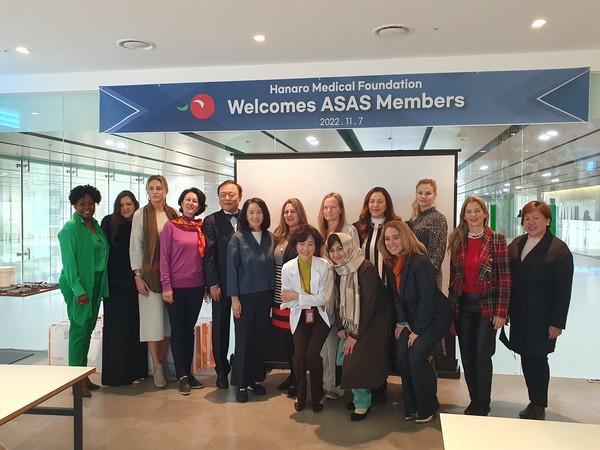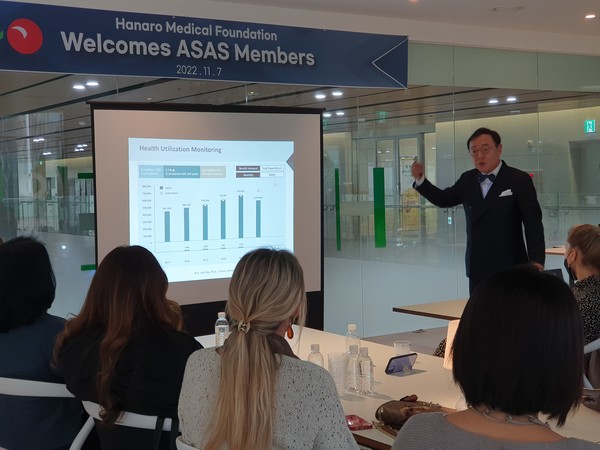Spouses of Ambassadors in Korea had a chance to learn why Korea’s cancer mortality rate was lowest despite the lowest health cost among 21 high-income countries.
The Hanaro Medical Foundation (HMF), a health checkup institution, welcomed 14 members from the Ambassadors' Spouses Association in Seoul (ASAS) to explain about Korea’s National Health Insurance system (NHIS) on Monday in Jongro, Seoul.

Ambassadors’ wives attending the event included ASAS Chairperson Maria Gabriela Blanco de Matute, wife to the Ambassador of Peru, who thanked HMF for organizing the session to learn about Korea’s healthcare system and strengthen dialogues about public health systems in their countries.
At the event, Professor Ryu Jong-su of Yonsei University's Graduate School of Public Health spoke on Korea’s national insurance system, which contributed to the nation’s lowest cancer mortality rate among 21 high-income countries. He referenced a recent publication in JAMA, titled, “Comparison of cancer related spending and mortality rates in the U.S. vs 21 high-income countries.”
Among the 21 countries, Korea had the lowest cancer mortality rate with 75.5 deaths per 100,000 people. Also, Korea’s total health costs per capita was the lowest at $2600.
“Public health systems should pay attention to this report and learn from nations with lower cancer mortality with lower spending,” he said.

Ryu attributed this to Korea’s unique public health insurance system which offers free annual health check-ups under the universal health coverage system.
According to Ryu, Korea’s universal health insurance coverage ensures wide access to healthcare as it is compulsory for all citizens and foreigners alike.
Global institutions like the Asian Development Bank (ADB), Inter-American Development Bank (IDB), World Bank (WB) and World Health Organization (WHO) are “benchmarking this unique system,” he said.
However, he acknowledged that this system still needs to be developed further with a digitalized system as many still forgo these free health check-ups which are key for early diagnosis and prevention of disease.
Natalia Maria Federighi de Cuello, wife of the Dominican Republic Ambassador, asked how low- and middle-income countries with few resources can strengthen healthcare systems.
In response, Ryu said, “There is no one-size-fits-all solution. So each country’s specific political, cultural and social should be considered to build the appropriate health systems.”
Addressing the issue of scarce resources, he added, low- and middle-income countries should seek support from international organizations like the IDB, GAVI, WB and others to help strengthen its public health systems.

